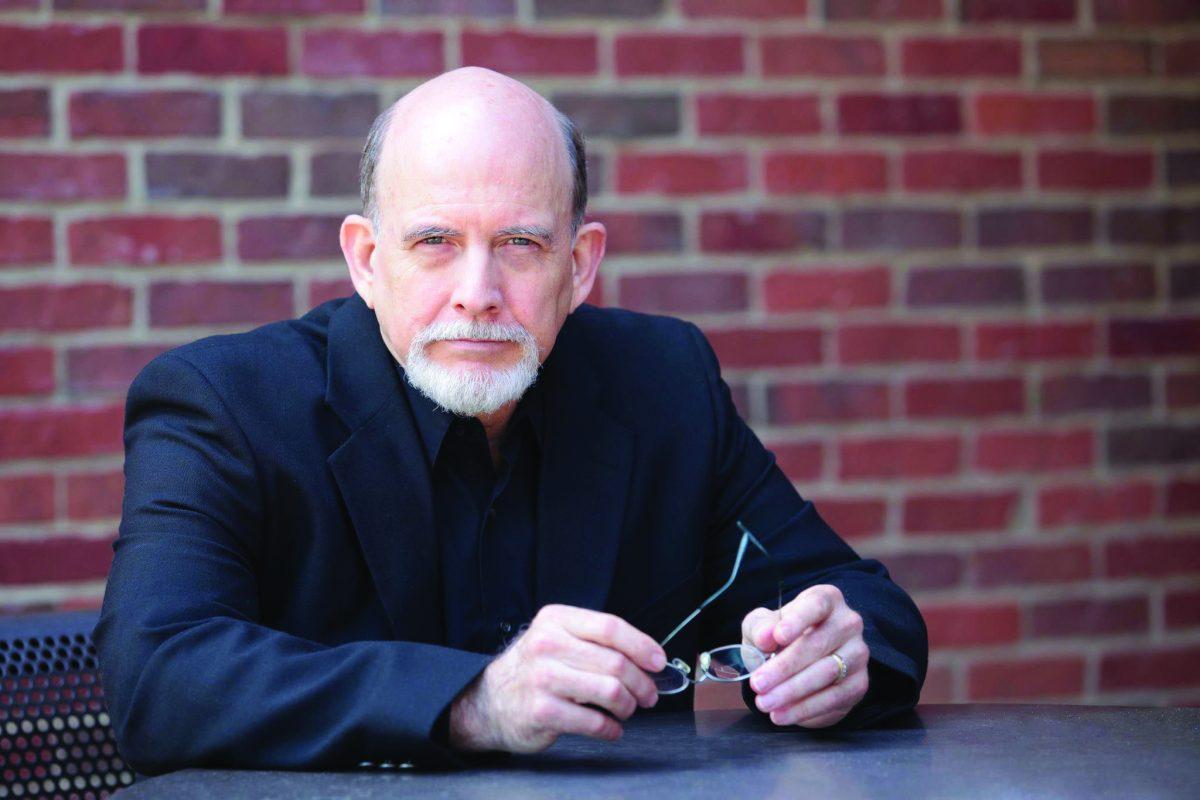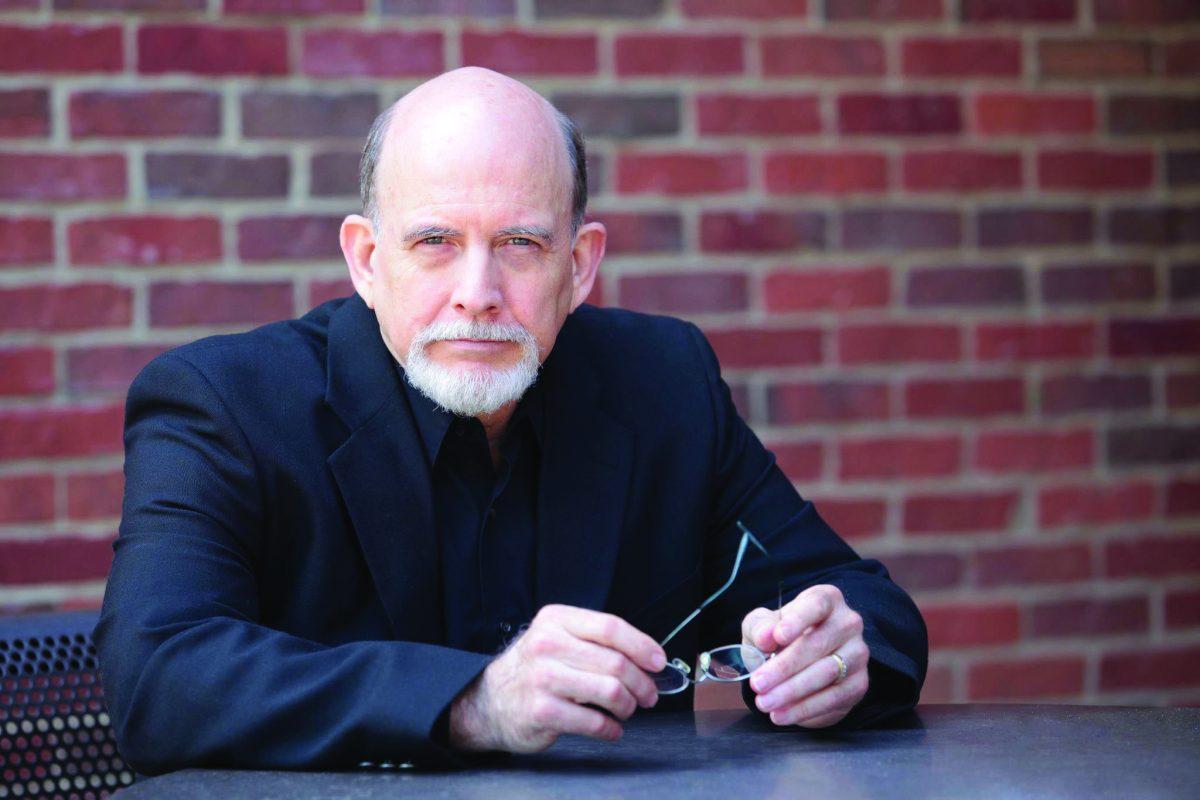
David Crawford talks about his career and experiences
 David “Doc” Crawford has been an instructor since 1975 and has been a playwright just a year before. He started his career at TJC and after finishing up at University of North Texas and Texas Tech University he came back to his alma mater.
David “Doc” Crawford has been an instructor since 1975 and has been a playwright just a year before. He started his career at TJC and after finishing up at University of North Texas and Texas Tech University he came back to his alma mater.
Dr. David Crawford is a TJC theatre alumnus and professor. He has spent time bringing his experience into the classroom for over 40 years as an educator. He has also taken up being a playwright where he has written many plays such as the one-act play “McDono”.
Q: How long have you worked at TJC?
A: Just began my 49th year.
Q: What influenced you to explore the realm of theatre?
A: Dumb luck or the good Lord. Take one or the other. I’ll probably take the good Lord. How? Why? What happened? I came to TJC because football played out, because my body did. At the ripe age of 17, I would have gone to play football some where, but I had several injuries and I said, “That’s painful.” So I came to TJC, because I lived three and a half miles down the road. I came here and I started majoring in speech because I enjoyed it in high school. I mean, there was no just theatre department. It was speech and drama. So I came here, got into the place, and I said, ‘You can major in this. This is cool stuff. This is fun.’ So I finished up at TJC and went to North Texas and majored in speech and drama, and wasn’t through. So I went and got a master’s, and then I found out I had to go to work. So I went and taught high school in speech and drama, and never looked back.
Q: What led you to become an educator?
A: Line of educators. My mom, my Grandmom. I got to high school and I looked ahead, thinking it was a natural thing. I was president of Future Teachers of America. It was natural. It was part of my choosing. That wasn’t really a problem going into theatre and thinking I’m going to teach drama later, was sort of a natural. I was never interested in going and doing it professionally, because those guys spent the summer looking for the next job, and I wasn’t. I had a job and I was secure. I wanted a normal family and life and kids and the white picket fence and the van.
Q: How did you get into playwriting?
A: Always wanted to write, and I always, always enjoyed writing, creative writing. At that time in the world, there was not a whole lot of playwriting education going on, very little. I tinkered with it, but it wasn’t until ‘74 I really got serious about it. It wasn’t until 1978, a friend that I had met doing summer stock, called me one night and he said he’s in New York. He’s a member of a company, and they’re doing all new stuff, and they don’t know any playwrights and asked if I had anything. I sent him stuff, and they picked one. That was the first that was an off-Broadway production of my work.
Q: What’s been your favorite play you’ve written?
A: I look at “Harvest,” that was another one that went off-Broadway that won awards. I have one that I wrote about my mother’s story. She was one of the first women in the Marine Corps during World War II. And yeah, you look back at them and you’re going, yeah, there’s something in you. Holy cow. I wrote it. It came from me.
Q: Why is storytelling important?
A: Because it’s natural to the human condition. It’s what we do. We’ve seen evidence of Native Americans. They’re dancing around the campfires. They are just acting out their hunts and what they do during the day. You tell children’s stories, and it goes back to the dawn of time. It’s part of our ability to fantasize and see ourselves in other settings. It enriches the human condition. It doesn’t matter if you’re a plumber in Cushing, Texas or if you are a mechanic across the street here, we all have an innate ability to fantasize and create. That’s why we go to the movies, that’s why we watch TV, that’s why we read books. I mean, can you imagine life without dreaming? Life without the ability to read a book? There’s nothing to enrich that experience.
Q: What is one big picture thing you want a student pursuing theatre in this department to take away from this experience?
A: To know what they’re doing. What is theatre? It is an art form. There are people out there, millions of people out there who take part in some dramatic activity and just do it for fun. That’s great. But if you’re going to devote yourself to the art form, you should know what it is that you’re doing. I hope we can start that process here.
Q: Is there anything else you would like to add?
A: Jesus Christ Superstar in February! Normally, you’re talking about a Broadway musical that you have the book, you have the music and you have the dance, but this is all mashed together, and there’s really no book. It’s an opera. It’s a rock opera. And once it begins, it just flows continually. It’s just going to be something so totally different from my background from everybody’s background, it’s going to be so much fun, too!
*This Q&A has been edited for clarify purposes.*